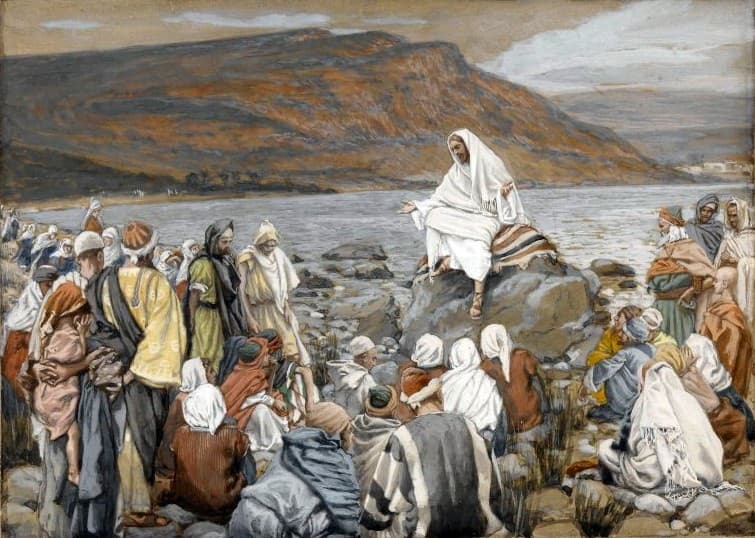At the heart of Christian discipleship is the call to prayer. As followers of the Lord Jesus, we are invited to walk his way, and such a way centers around prayer. We cannot faithfully live the Christian way of life if we are not living a life of prayer.
The Lord Jesus showed us the importance of prayer by surrounding his own life with times and moments of prayer.
In addition, the Lord also taught about prayer and stressed its importance to us. Such teachings are especially found in his collection of parables. As the Catechism of the Catholic Church teaches us: “Three principal parables on prayer are transmitted to us by St. Luke.”
Each of these three principal parables highlights some essential aspect of prayer.
The first parable is of the friend who comes at night and needs food for a guest. The Catechism tells us: “The first [parable], ‘the importunate friend,’ invites us to urgent prayer: ‘Knock, and it will be opened to you.’ To the one who prays like this, the heavenly Father will ‘give whatever he needs,’ and above all the Holy Spirit who contains all gifts.”
The parable rightly stresses the urgency of prayer, especially when there are pressing or emergency needs. It is the power of prayer that will turn chaos into peace, distress into tranquility. We turn to prayer in order to regain what has been taken from our souls by stressful situations. We turn to prayer to encounter God and find virtuous and good solutions to unsettling state of affairs. We slow down, commune with God – who is above all things, receive divine wisdom, and then take actions that will diminish or end the distress.
The second parable is the widow who harasses the judge for a verdict. She is relentless and exhausts the judge to the point that he gives a ruling on her case. The Catechism teaches: “The second, ‘the importunate widow,’ is centered on one of the qualities of prayer: it is necessary to pray always without ceasing and with the patience of faith. ‘And yet, when the Son of Man comes, will he find faith on earth?’”
Perseverance is a rare virtue in Western society today. Many people are eager to roll over, admit defeat, and move along. Such defeatism is also found in prayer. Some will say, “I tried to pray, but it didn’t work!” Work? What exactly is meant when someone says prayer doesn’t work? It oftentimes means that the person didn’t get what they wanted, when they wanted, and how they wanted. In other words, God didn’t obey them.
Prayer, however, is not about getting something. It’s about encountering God and being changed by his grace. Prayer works, if we’re willing to persevere. Sometimes we get what we want. Other times not so much. In either case, prayer works. God’s will is done. Our task is to persevere and trust in his ways.
The third parable is the Pharisee and the tax collector in the Temple. The Pharisee is filled with self-importance and pride, while the tax collector knows that he is a sinner, beats his breast and begs for mercy. The Catechism teaches: “The third parable, ‘the Pharisee and the tax collector,’ concerns the humility of the heart that prays. ‘God, be merciful to me a sinner!’ The Church continues to make this prayer its own: Kyrie eleison!”
Humility is the only path that prayer feels comfortable to tread. Humility is needed if we are going to truly pray. It is only the heart that knows where it stands before God that will have the necessary openness to truly pray, speaking honestly before God and quieting itself so that God can be heard and listened to when he speaks. Docility is the key that opens the spiritual life.
The way of humility is the way of the Lord, and so humility is the way of prayer. Pride and arrogance pounces on the soul and hubris chokes the life of grace from the heart. In such slavery, the soul cannot aspire or respond to the call of prayer.
In these three parables, the Lord Jesus gives us a plain, no-nonsense instruction on prayer. Prayer needs a sense of urgency. Prayer needs to persevere. And prayer needs humility if it is going to grow and flourish within us.













